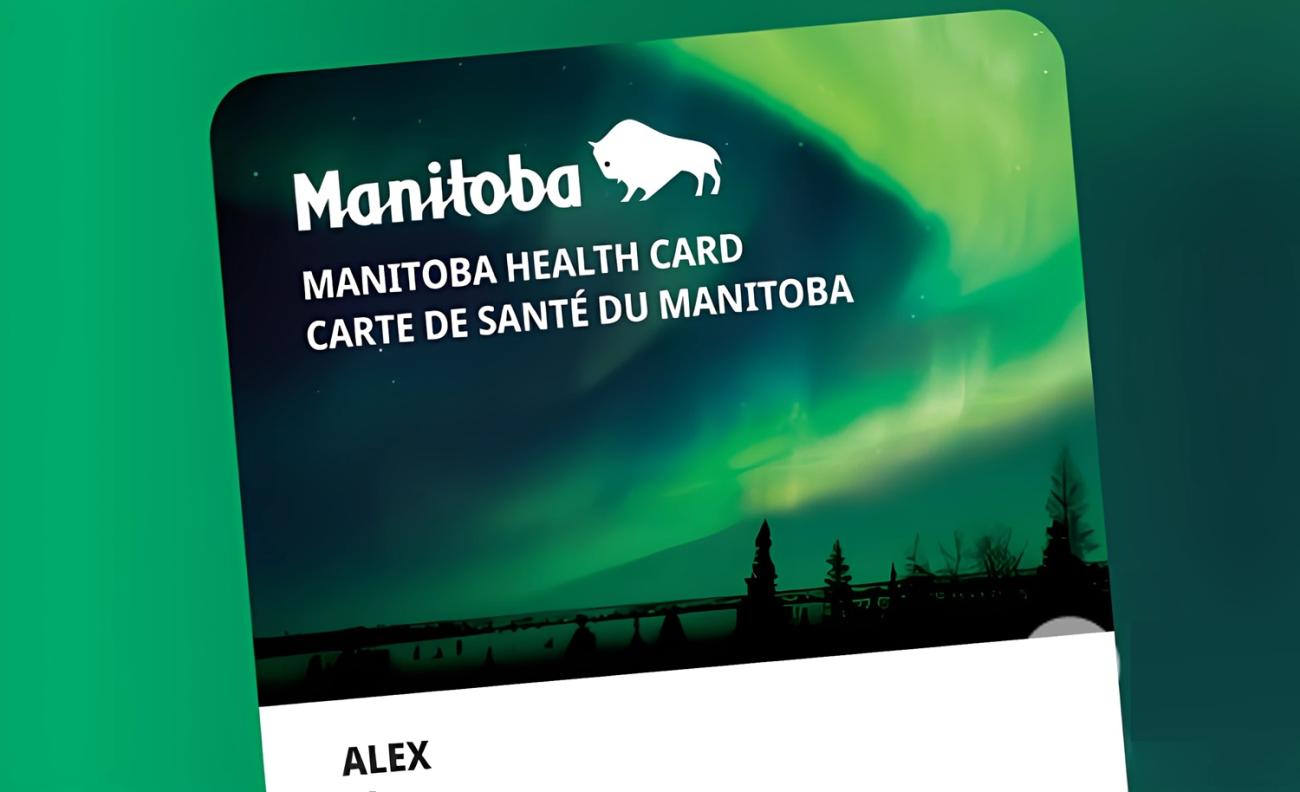As of January 15, Manitobans can begin applying for a more modernized version of the provincial health card. The new plastic cards contain the individual’s name, healthcare numbers, and a QR code which can be scanned to provide additional details.
The announcement was made by Uzoma Asagwara, Minister of Health, Seniors, and Long-term Care, and Mike Moroz, Minister of Innovation and New Technology.
“Our government has been working hard to move our healthcare system into the modern era and we’re thankful for Manitobans’ patience as we take time to get this process right,” says Asagwara. “Over the next few months, we expect the popularity of this initiative to mean it may take some time for every Manitoban to receive an updated card, but we’re focused on finally getting this done.”
Until now, Manitoba has been among the last remaining provinces and territories to still issue paper copies of health cards, the only other one being Alberta.
In spring, the switch to plastic health cards became a part of the provincial budget with an anticipated December rollout. Due to the Canada Post strike, the initiative was delayed until January.
In September, Premier Wab Kinew sent out an Instagram post inviting Manitobans to vote on one of three health card designs. They featured different Manitoba icons: the polar bear, the bison, and northern lights. In the end, the new cards are embossed with northern lights imagery.
“I’m sure Manitobans are just as excited as we are to say goodbye to a fading paper card and replace it with a more durable option,” says Moroz. “This is just one step our government is taking to both modernize government services and make sure Manitobans can easily access services they need.”
While children’s information used to be listed on their parents’ paper health card, every child and youth will now receive their own personal plastic card in 2025.
This change, the government says, will align with jurisdictions across Canada and help to update old record-keeping methods.
The new cards will also offer the options for the holder to identify their language preference, either French or English.
Alongside the introduction of the plastic card comes the digital version which will become available in the coming months.
Anticipating that demand for the new plastic card will be high at first, residents are asked to be patient while waiting on their copy to arrive. The wait could take months. In the meantime, paper health cards will continue to be valid and accepted at all healthcare facilities.
APPLY FOR YOUR CARD NOW
To apply for the Manitoba health card, visit: https://manitoba.ca/health/mhs…


